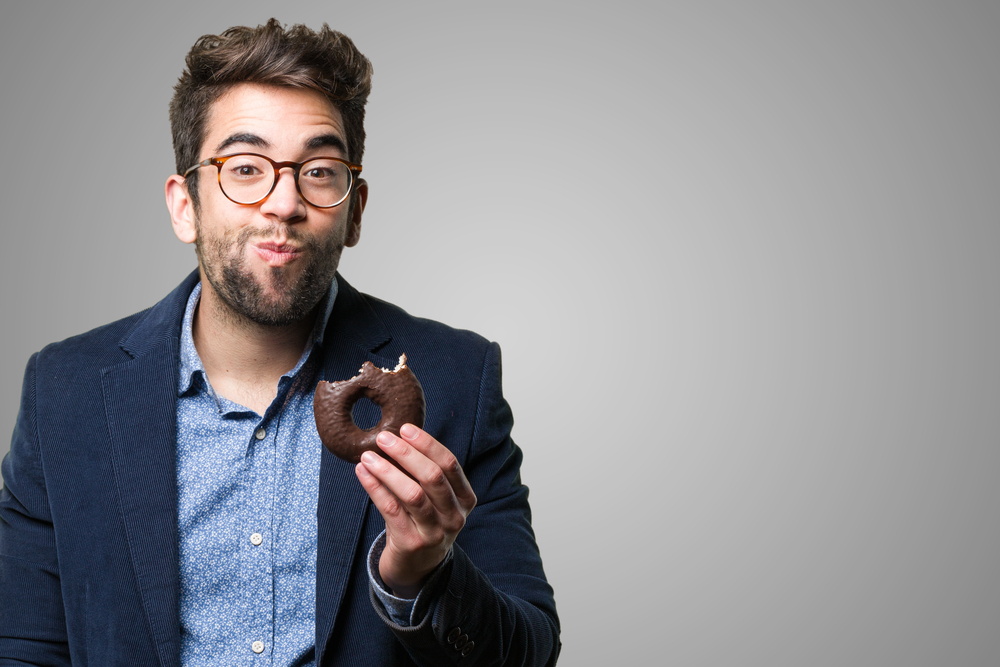Contents:
- Medical Video: Five Things That Help Smokers Quit : Psychology & Mental Health
- Why stop smoking making stress?
- Easy steps to overcome stress after stopping smoking
- 1. Ask for support from your family or closest person
- 2. Recognize signs of stress
- 3. Divert attention
- 4. Set your diet
- 5. Sports
Medical Video: Five Things That Help Smokers Quit : Psychology & Mental Health
Cigarettes are often used as an escape to deal with stress. That's why smokers often go back and forth when deciding the right time to stop these unhealthy habits. Once you stop smoking, sometimes you feel even more stressed and tempted to go back to smoking cigarettes to reduce it. So, is there a way to overcome the effects of quitting smoking on this one? Check out the answer below.
Why stop smoking making stress?
Reporting from Everyday Health, the CDC in the United States found that about 70 percent of ex-smokers experience the effects of quitting smoking which is quite powerful. Starting from drastic weight gain, anxiety disorders, to depression or prolonged stress.
This is because the nicotine content in cigarettes triggers an increase in the dopamine hormone in the brain. As a result, feeling relieved, satisfied, happy, and more calm when smoking cigarettes. In fact, this effect is almost equivalent to the effect of antidepressant drugs that can relieve depression.
When someone stops smoking, there is no more dopamine boost in the brain. As a result, you become easily stressed, more aggressive, and easily angry. So it's not surprising that many ex-smokers are tempted to return to smoking even though they have stopped for years, just because they can't stand the stress.
Easy steps to overcome stress after stopping smoking
Overcoming stress after stopping smoking is actually easy. The main key is to instill the intention that you want to live a healthy life and improve the quality of life without smoking.
The following are the steps to overcome stress as a stop smoking effect, namely:
1. Ask for support from your family or closest person
The initial process of quitting smoking is difficult, but don't be shy to ask for support from people closest to you, such as family, spouse, or colleagues. If necessary, you can also see a smoking cessation counselor to help deal with the stress that is felt.
If it is still difficult, immediately consult the nearest doctor. According to Douglas Jorenby, Ph.D., a director of clinical services at the University of Wisconsin Center for Tobacco Research and Intervention in the United States, doctors may prescribe certain drugs or nicotine replacement therapy (NRT).
NRT is available in various forms, ranging from gum, inhalers, to patchy shapes (patch) This therapy is very useful to help control anxiety and the urge to return to smoking.
2. Recognize signs of stress
Recognizing signs of stress is important to help you deal with it more easily. Not only is excessive anxiety, signs of stress due to other smoking cessation effects include:
- Muscles tighten
- Neck pain or back pain
- Stomach ache
- Headache
- Constipation or diarrhea
- Hard to breathe
If you experience one or more of these symptoms, sit quietly and adjust your breath slowly. Remember, returning to smoking is not the right solution to overcome this stress.
The sooner you know the symptoms, the faster you will deal with stress before it gets worse. Again, ask for help from someone nearby to help calm you when stress strikes.
3. Divert attention
Once stress strikes and the desire to return to smoking arises, immediately turn your attention to the things you like besides smoking. Whether it's going for a walk out of the house, listening to music, taking a warm bath, eating, or even sleeping.
Doing breathing exercises such as meditation and yoga can also help you deal with difficult times after stopping smoking. The reason is, every oxygen that enters the body will help normalize heart rate and blood pressure that increase during stress. As a result, you also become more calm afterwards.
Whatever method you choose, keep in mind that stop smoking is not impossible. The proof is that many people have managed to quit smoking completely, so that means you can do it too.
4. Set your diet
The body needs nutritious food intake to excrete nicotine and other poisons in the body. There are many benefits that you can achieve, ranging from healthy body, relieve stress, to help prevent fat bodies after quitting smoking.
It doesn't matter if you choose to eat when stress strikes. However, choose foods that are healthy and nutrient-dense such as vegetables, fruits, nuts, seeds, and so on. The toxic substances in your body will be inferior to the good nutrition of these healthy foods.
No less important, avoid foods or drinks that contain caffeine and alcohol. Because the two ingredients can actually lead to the desire to return to smoking and risk failing your business.
5. Sports
Sport is one of the most effective natural stress medicines and you should try it. Exercise can increase the production of endorphins, dopamine and serotonin, which are hormones that play an important role in creating feelings of pleasure and reducing pain.
The more diligently you exercise, the better your mood will be and make your mind more refreshed. However, you do not have to bother doing strenuous exercise to deal with stress more quickly, really.
Whether it's swimming, jogging, or yoga, do whatever type of exercise you like. Most importantly, do it regularly and consistently. That way, your mind will be much more refreshed, calm, and not easily tempted to give up after successfully stopping smoking.

















